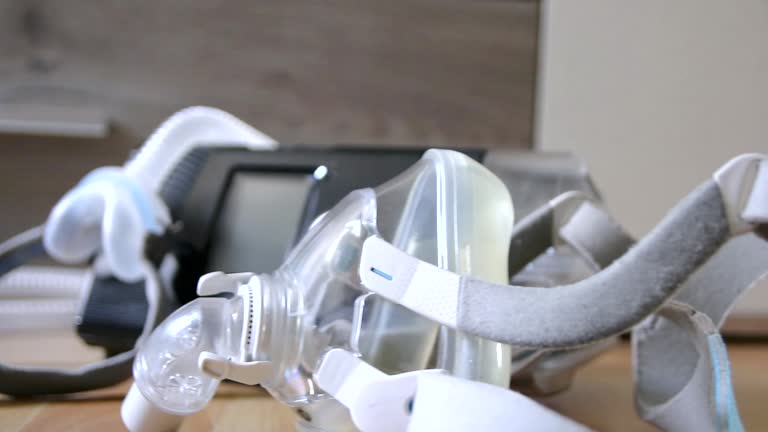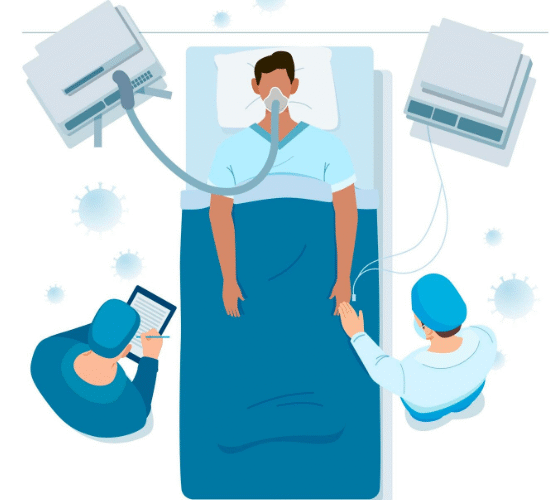Sleep apnea is far more than just loud snoring or occasional nighttime awakenings—it’s a serious medical condition that disrupts breathing hundreds of times per night, depriving your body of oxygen and significantly impacting your health. For millions of Americans, CPAP therapy (Continuous Positive Airway Pressure) has become a life-changing treatment that not only improves sleep quality but also reduces risks for heart disease, stroke, and other serious conditions.
In this in-depth guide, we’ll explore everything you need to know about CPAP therapy: how it works, why it’s so effective, the different types of machines available, and practical tips for overcoming common challenges. Whether you’re newly diagnosed with sleep apnea or considering treatment options, this comprehensive resource will help you understand how CPAP can transform your sleep and overall wellbeing.

Understanding Sleep Apnea: The Silent Nighttime Epidemic
Before diving into CPAP therapy, it’s crucial to understand the condition it treats. Sleep apnea occurs when your airway becomes partially or completely blocked during sleep (obstructive sleep apnea) or when your brain fails to send proper signals to your breathing muscles (central sleep apnea). These interruptions can happen dozens—even hundreds—of times per hour, with each event potentially lasting 10 seconds or longer.
The Three Types of Sleep Apnea:
- Obstructive Sleep Apnea (OSA): The most common form, caused by throat muscles relaxing and blocking the airway.
- Central Sleep Apnea (CSA): Occurs when the brain doesn’t send proper signals to control breathing.
- Complex Sleep Apnea Syndrome: A combination of both obstructive and central sleep apnea.
Recognizing the Symptoms:
Many people with sleep apnea don’t realize they have it because the symptoms occur during sleep. Common signs include:
- Loud, chronic snoring (though not everyone who snores has apnea)
- Gasping or choking sensations during sleep
- Frequent awakenings to urinate (nocturia)
- Morning headaches and dry mouth
- Excessive daytime sleepiness
- Difficulty concentrating and memory problems
- Mood changes like irritability or depression
Left untreated, sleep apnea doesn’t just leave you tired—it significantly increases your risk for:
✔ High blood pressure
✔ Heart disease and heart attacks
✔ Stroke
✔ Type 2 diabetes
✔ Liver problems
✔ Metabolic syndrome
This is why proper diagnosis and treatment are so critical. A sleep study (either in a lab or at home) can determine if you have sleep apnea and how severe it is.

CPAP Therapy: The Gold Standard Treatment
CPAP therapy is considered the most effective treatment for moderate to severe obstructive sleep apnea. The concept is simple but revolutionary: a CPAP machine delivers a continuous stream of pressurized air through a mask, keeping your airway open throughout the night.
How CPAP Machines Work:
- The Motor: A small, quiet pump draws in room air and pressurizes it.
- The Humidifier (optional): Many modern units have heated humidifiers to prevent dryness.
- The Hose: Delivers the pressurized air to your mask.
- The Mask: Comes in various styles (nasal, full-face, nasal pillows) to suit different needs.
The constant air pressure acts like an “invisible splint,” preventing the throat tissues from collapsing and blocking the airway—the root cause of obstructive sleep apnea events.
The Science Behind the Success:
Multiple studies have shown that consistent CPAP use:
- Reduces apnea events by 90% or more in most patients
- Increases blood oxygen levels during sleep
- Lowers blood pressure (especially important for hypertensive patients)
- Improves heart function and reduces cardiovascular risks
- Enhances daytime alertness and cognitive function
- Decreases risks of diabetes complications
Perhaps most importantly, CPAP helps restore normal sleep architecture—allowing patients to progress through all sleep stages, including crucial deep (delta) sleep and REM sleep that are often disrupted by apnea events.

The Many Benefits of CPAP Therapy
While the primary purpose of CPAP is to treat sleep apnea, the benefits extend far beyond just preventing breathing interruptions:
1. Improved Cardiovascular Health
By maintaining steady oxygen levels and reducing the “fight or flight” responses triggered by apnea events, CPAP:
- Lowers blood pressure (especially nighttime BP)
- Reduces strain on the heart
- Decreases risk of atrial fibrillation
- May prevent progression of heart failure
2. Enhanced Daytime Functioning
Patients often report:
- Increased energy levels
- Better concentration and memory
- Improved work performance
- Reduced daytime sleepiness (no more fighting to stay awake while driving)
3. Emotional and Mental Health Benefits
Quality sleep affects mood regulation. CPAP users frequently experience:
- Reduced depression symptoms
- Less irritability and mood swings
- Improved quality of life
4. Metabolic Improvements
CPAP therapy can help:
- Improve insulin sensitivity
- Reduce HbA1c levels in diabetics
- Support weight management efforts
5. Relationship Benefits
With CPAP treatment:
- Bed partners often sleep better (no more loud snoring)
- Reduced nighttime disturbances benefit both parties
- Improved daytime moods enhance relationships

Choosing the Right CPAP Equipment
Modern CPAP technology offers various options to meet individual needs:
Types of CPAP Machines:
- Standard CPAP: Delivers one constant pressure setting.
- Auto-CPAP (APAP): Automatically adjusts pressure throughout the night.
- BiPAP (Bi-Level PAP): Provides two different pressures (higher for inhalation, lower for exhalation).
Mask Options:
- Nasal Masks: Cover just the nose
- Full Face Masks: Cover both nose and mouth (ideal for mouth breathers)
- Nasal Pillows: Small cushions that sit at the nostrils
- Hybrid Masks: Combination designs for specific needs
Most machines now feature:
✔ Ramp settings (gradually increasing pressure)
✔ Expiratory pressure relief (for easier exhaling)
✔ Heated humidification
✔ Data tracking capabilities
Overcoming Common CPAP Challenges
While CPAP is highly effective, adapting to therapy can take time. Here are solutions to common issues:
1. Mask Discomfort
Solutions:
- Try different mask styles and sizes
- Use mask liners to reduce irritation
- Adjust headgear for proper (not too tight) fit
2. Dryness/Nasal Congestion
Solutions:
- Use the heated humidifier
- Try nasal saline sprays
- Consider a chin strap if mouth breathing
3. Difficulty Tolerating Pressure
Solutions:
- Use the ramp feature
- Try expiratory pressure relief settings
- Practice wearing the mask while awake
4. Claustrophobia
Solutions:
- Start with minimal-contact masks (nasal pillows)
- Desensitize by wearing the mask during daytime activities
- Try relaxation techniques before bed
5. Machine Noise
Solutions:
- Place machine on a soft surface
- Use a longer hose to move it further from bed
- Consider newer, quieter models

Tips for CPAP Success
- Commit to Consistent Use: Aim for nightly use—even partial nights help.
- Establish a Routine: Make CPAP part of your bedtime ritual.
- Keep Equipment Clean: Regular cleaning prevents bacteria buildup.
- Monitor Your Progress: Many machines track usage and effectiveness.
- Stay Patient: It takes most people 2-4 weeks to fully adjust.
Frequently Asked Questions
Q: How long before I notice improvements?
A: Many feel more rested within days, but full benefits may take weeks of consistent use.
Q: Can I travel with my CPAP?
A: Yes! Most machines are travel-friendly. Inform TSA if flying—CPAPs don’t count as carry-ons.
Q: What if CPAP doesn’t work for me?
A: Alternatives include oral appliances, positional therapy, or surgical options—consult your sleep specialist.
Q: Will I always need CPAP?
A: For most, CPAP is a lifelong treatment, though weight loss may reduce pressure needs.
The Life-Changing Impact of CPAP Therapy
CPAP isn’t just a medical device—it’s a gateway to better health, improved relationships, and enhanced quality of life. While adapting to therapy requires patience, the long-term benefits make it worthwhile.
If you suspect sleep apnea, don’t delay evaluation. A sleep study can determine if CPAP is right for you. With proper treatment, you can reclaim restful sleep and all the health benefits that come with it.
Call to Action:
Ready to improve your sleep and health? Find a sleep specialist near you to discuss CPAP therapy options tailored to your needs.
Additional Resources:



0 Comments